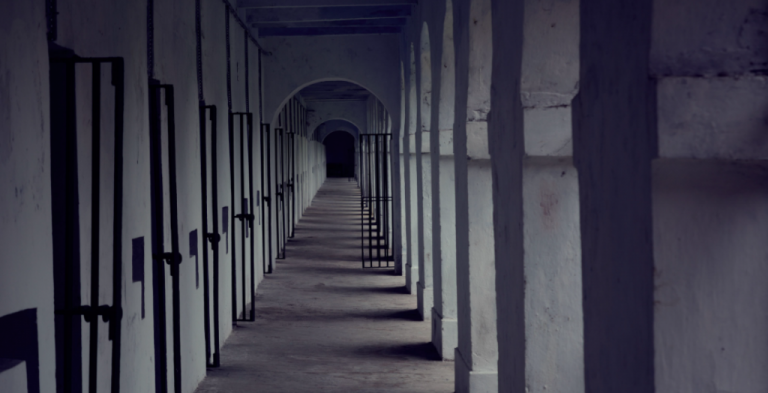The Suffering of Female Prisoners
The Supreme Court of India in one of its landmark judgments in Sunil Batra v. Delhi Administration has held that:
In our constitutional order it is axiomatic that the laws do not swallow up the fundamental rights of the legally unfree and as sentinels on the qui vive, courts will guard freedom behind bars, tempered, of course by environmental realism but intolerant of torture by executive echelons. The policy of the law is beyond purchase by authoritarians glibly invoking ‘dangerness’ of inmates and peace in prisons.
Thus, the Supreme Court of India has made it clear that the imprisonment of a prisoner does not culminate in suspension of a prisoner’s every fundamental right. The protection of these fundamental rights in case of female prisoners become an issue of vital importance because female prisoners more than their male counterparts are prisoners of their own sex with special problems not faced by men because of their inherent biological differences.
The problems faced by the female prisoners inside the jails are of varying nature and the characteristics of each of these problems have different repercussions of different intensity, making their lives miserable in different manners inside the four walls of the prisons. Some of these problems include:
Inadequate Basic Facilities:
Most of the Indian prisons have highly unsatisfactory basic facilities. These include poor toilet facilities, bathing, clothing, breakfast, food, soaps, detergents, sanitary napkins, sleeping arrangements, regular and emergency medical care, overall unhygienic environment etc.
According to a study conducted over 150 convicted female prisoners in Jaipur Central Jail, Rajasthan, the condition of female prisoners in Indian prisons appear to be extremely disappointing and regrettable. [For detailed information on this study, please refer to Indian Journal of Gender Studies, 16:2 (2009), 253–271]
When the study team put certain questions to female prisoners on their living conditions in the prison, out of 150 respondents 95 felt that the jail was overcrowded while 55 felt it was not. A majority of 102 prisoners believed that bathrooms and toilets were insufficient while 48 believed that they were sufficient. A little more than half of the respondents (76) said that bathrooms and toilets were dirty while 74 did not complain. A majority of 131 prisoners thought that the bedding given was not sufficient. A little less than half of the respondents (64) were not satisfied with the food while a little more than half (86) were satisfied.
It is important to remember that the majority of women were from poor families and lived in environments lacking proper facilities at home; hence, their expectations were also minimal. Prisoners did complain about lack of soaps and sanitary napkins. They also complained that food items coming from their homes did not reach them. The lack of sufficient clothing and hygiene was obvious to the researchers. Prisoners also complained that they were forced to clean the toilets with brick pieces, as the authorities did not provide brushes and toilet cleaners for the purpose despite rules that specify that toilets will be cleaned by staff appointed for the purpose. This is also to be noted that the prison officials did not allow the study team to put questions to the female prisoners in solitude. The officials were present while questions were put to them, so obviously, all the female prisoners could barely muster up the courage to furnish an honest answer to every question put to them on their living conditions.
Poor Medical Facility
The medical facilities, like all other basic facilities inside most of the Indian prisons, are in shabby condition and down at heel. Though, the proper medical care is fundamental to all including male prisoners, the female prisoners by their congenital biological differences require special care and attention. In the same above-mentioned study conducted over 150 female criminals in Central Jail, Jaipur, Rajasthan, they confided the study team during a discussion that the medicines required were not made available to them and that they were mostly given sleeping pills for every ailment. The female prisoners are also hardly provided sanitary napkins and other essential items including proper clothing in winter which are required them to keep physically sound.
According to a report published in the ‘Times of India’ the conditions of medical care and protection for the female prisoners in two prisons in Arthur Road and Byculla in Mumbai, Maharashtra, were found to be in an extremely pathetic state. This report claims:
Medical facilities are pathetic. The female prisoners take care of each other when they feel ill. One woman had a miscarriage and bled for a few hours before she was taken to the hospital.
A study on the prevalence of HIV in Indian prisons revealed that 1.7% of male and 9.5% of female inmates were HIV positive. [Please see, Dolan K, Larney S. HIV in Indian prisons: Risk behavior, prevalence, prevention, and treatment. Indian J Med Res. 2010; 132:696–700]
This is significantly higher than the national HIV prevalence of 0.32% in males and 0.22% in females. [Please see, Press Release of ‘Ministry of Health and Family Welfare dated November 30, 2018]
High rates of TB have been reported by Human Rights Watch in India and a study in 2008 had found that 9% of prison deaths were attributed by TB.
In an observation made by Shamina Shafiq, a former member of National Commission for Women, the incarcerated women frequently faces the problem like no food and water, no doctor to treat the sick inmates, and no possibility of meeting or speaking to family members.
Rule 26.01 of Model prison manual, 2016 states that ‘only lady doctors shall look after the medical care of women prisoners during their stay in prison’. However, there is, hardly sufficient number of female doctors appointed in the prisons, to deal with females specific health requirements.
In Indian society, a male doctor can’t enjoy as much as the confidence of a female as a female doctor shall ordinarily enjoy. Ironically, the rest part of the same rule states that ‘Part-time lady medical officers of the District Government shall be engaged for medical examinations of female prisoners on admission. The question arises that why such a lady medical officers should be engaged on a part-time basis, why can’t she be engaged on a full-time basis and why a particular number of such lady medical officers in each jail is not made mandatory on the proportionate basis of the number of female prisoners in a particular jail? The female prisoners feel uneasy in sharing their some of the female-specific health problems to a male doctor inside the prison. Many committees on prison reforms have been suggesting the Government on this point but with less fruitful results.
Safety of Female Prisoners
The new Model Prison Manual, 2016, in one of its chapters specifically dedicated to ‘Women Prisoners’ states at the very outset itself that, “To ensure safety of women prisoners and guard them against any form of exploitation, it is desirable that at least one woman’s jail be established in each state.” The suggestions for special prisons for women prisoners are not new as it has been recommended by several committees including ‘Jail Reforms Committee, 1980-83’ and ‘National Expert Committee, headed by Justice Krishna Iyer, 1986-87. The lackadaisical attitude of the Governments towards properly addressing the issues and concerns of female prisoners can simply be understood by going through the Prison Statistics India 2014 report according to which, out of 29 states / UTs in India, only 13 states / UTs have ‘women jails’ and the number of such jails out of total number of 1387 jails in the Country is just 19. This indicates that the Governments have hardly any interest in improving the prevailing grim situations. Women prisoners are not safe even behind the bars. Their exploitation continues unabated.
Ms. Saradha was brought to Special Prison for Women, Vellore, Tamil Nadu, as a remand prisoner having been remanded by the Judicial Magistrate. She was undressed totally and dragged nude for quite some time till they reached the entrance of her cell and was put in solitary confinement and she was never given back her clothes and no official in the prison bothered about her. She was awarded 50000/- as compensation by the court. A female prisoner in Tihar Jail, New Delhi, facing trial in cases of cheating and forgery, had accused the jail warden of torturing her with the help of HIV positive woman inmate for extorting money from her. She had also alleged that she was beaten up for an hour in front of the deputy superintendent and the jail staff who remained mute spectators.
As per Prison Statistics India 2014, “A total of 51 deaths of female inmates were reported during 2014, wherein 46 deaths were natural and 5 deaths were unnatural during the year 2014. As per Prison Statistics India 2013, “A total of 55 deaths of female inmates were reported during 2013, wherein 48 deaths were natural and 7 deaths were unnatural during the year 2013. Similarly, “A total of 55 deaths of female inmates were reported during 2012, wherein 8 deaths were suicidal in nature reported during the year 2012, as per Prison Statistics India 2012.
This is indeed a matter of serious concern for the well-being and security of the female prisoners if a total number of twenty female prisoners die an unnatural death in three consecutive years. This indicates that there is essentially a huge lacuna in the security system of the Indian prisons. These statistics certainly point towards a rotten security system inside the prisons. Not only that, but such a huge number of unnatural deaths of female prisoners in three consecutive years also corroborate my facts about the dilapidated state of medical care and protection system in place inside the prisons for female prisoners.
To be continued…
Co-writer: Rupa Bhattacharya
Further, Read More:



